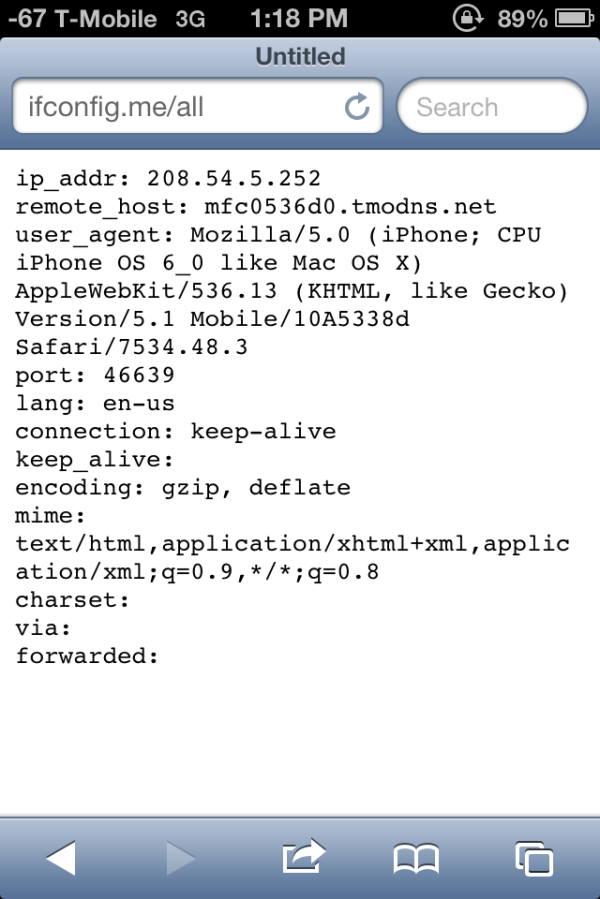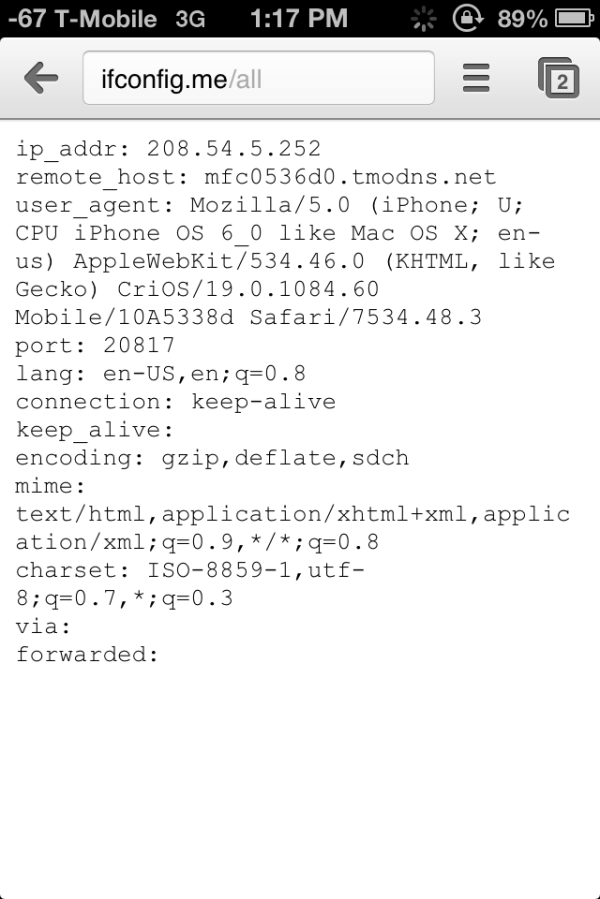Some Impressions and Benchmarks from Chrome on iOS
by Brian Klug on June 28, 2012 4:13 PM EST- Posted in
- Smartphones
- Mobile
- Chrome
- iOS
- Tablets
- Trade Shows
- I/O 2012
Earlier today, Google announced Chrome for iOS (iPhone and iPad), and thanks to Richard Gaywood finding a direct link to the App Store, I got the chance to play around with it in-between a busy schedule of sessions and meetings at I/O 2012. Chrome on iOS weighs in at 12.8 MB and is version 19.0.1084.60.
Earlier I had a glimmer of hope that Apple had relaxed the App Store rules to allow Chrome as a real native application on iOS, complete with its V8 JavaScript engine and newer version of WebKit (535.19). Unfortunately, as suspected, Chrome on iOS uses iOS' UIWebView, which means the same rendering engine as mobilesafari. On my iPhone 4S running iOS 6 B2, you can see the same user agent string (with the Chrome OS version tacked in between some other things) shared between mobilesafari and Chrome.
| iOS MobileSafari | |||||||
| Location | WebKit Version | HTML5test.com Score | CSS3test.com Score | Sunspider 0.9.1 | |||
| iOS 5.1.1 | 534.46 | 324 + 9 | 52% | 2226.1 | |||
| iOS 6.0 B1 | 534.46 | 360 + 9 | 57% | 1842.9 | |||
| Chrome for iOS (on iOS6 B2) | 534.46 | 360 + 9 | 57% | 6839.4 | |||
In addition, like other apps leveraging UIWebView, there's no access to mobilesafari's Nitro JavaScript engine which has JIT and other optimizations that make it run much faster. That means JavaScript execution is significantly slower inside Chrome on iOS than it is in mobilesafari.
On the positive side, the Chrome interface is pretty much exactly how it appears on Android, including the nice tabbed card switcher complete with the ability to close and switch tabs by swiping off the edge of the screen. Scrolling around inside webpages is also nice and speedy on Chrome for iOS, which isn't a surprise since, again, it's using UIWebView. The real feature in Chrome for iOS sadly isn't a superior browsing engine, but rather the ability to sync your tabs, pages, and back history across the desktop and more mobile platforms.
Update: As NobleKain points out in the comments, there's a discrepancy between WebKit versions between iOS 6 B1 and B2. B2 is now running 536.13, but WebView remains 534.46. Either way for users running iOS 5.1.1, these should be the same, I just unfortunately only have a device on me running the beta, hence the discrepancy.


















52 Comments
View All Comments
Steelbom - Monday, July 2, 2012 - link
No it isn't and it's certainly not going to catch errors that a developer might make which would possibly allow for something like this to be exploited.darkcrayon - Monday, July 2, 2012 - link
Re: exploitsYou will. Just wait.
solipsism - Saturday, June 30, 2012 - link
MS had a monopoly and used anti-competitive means to restrict the market. The iPhone does not a market make and Android is doing quite well.Mr Alpha - Saturday, June 30, 2012 - link
Microsoft is doing the same thing on Windows RT. No third party JIT.Solidstate89 - Thursday, June 28, 2012 - link
Richard (Dick) Gaywood.You can't make a name like that up.
schizoide - Thursday, June 28, 2012 - link
Without the JIT compiler, it simply cannot compete with safari. I'm honestly not sure why Google bothered pitching it as a full browser rather than just doing a "Chrome Sync" app like Mozilla did for Firefox.This isn't actually arbitrary from Apple. The problem as I understand it is that the JIT compiler can't be run in the sandbox as it sets memory pages executable, and could thus be used to trivially jailbreak.
Death666Angel - Friday, June 29, 2012 - link
And forbidding people to jailbreak the device is not arbitrary?solipsism - Saturday, June 30, 2012 - link
arbitrary: based on random choice or personal whim, rather than any reason or system.What exactly do you think is random or a personal whim about security?
Striderevil - Sunday, July 1, 2012 - link
And yet the device is still being Jail broken albeit other methods. When are they going to learn to give up some restriction in favor of user choices. If iOS offers what everyone needs then they truly don't have to worry about jailbreaks but with a closed restrictive monopolistic environment they spend half their time trying to patchup potential holes that will always be there.gcor - Tuesday, July 3, 2012 - link
I suspect the vast majority of iPhone users want restrictions, provided they bring stability, ease of use and security.